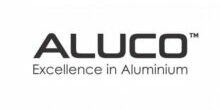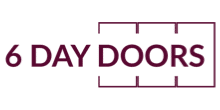If your window company presently sells a lot of PVCu windows and you are interested in selling more aluminium, how can you teach your salespeople to accurately explain about aluminium windows when compared to PVCu?

One of the most common features of aluminium windows sold for the home is that the vast majority of them are externally beaded. Of course, internally beaded windows have been available in aluminium for a long time already but if the issue of internal or external window beads is questioned by the customer how can you best answer this for them?
As experienced window people, we know that many PVCu only window salesmen try to convince their customers that externally beaded windows are less secure than internally beaded.
Considering your average customer knows very little about windows and how they are made secure in their design, production and installation it is easy for a customer to believe what they are told.
Selling externally versus internally beaded windows.
The obvious evidence in favour of internally beaded windows is that an internal glazing bead by nature of the fact that it is behind the glass must automatically make the window more secure because the bead cannot be removed from the outside. The only way it could possibly be removed is by breaking the glass and removing the bead.
There are several ways this reasoning in favour of internal beads can be questioned but let us take these questions in order of what we consider the most important and especially if you wish to reassure your customers.
It is also worth remembering that the early PVCu windows were actually externally beaded and the weakness of a thin plastic bead quickly reverted them to internally beaded.
All quality windows, whether aluminium or PVCu have been tested to recognised industry standards.
It is important to remember that a vast number of window systems have already been tested to recognised industry standards. Whether British or European, they have undergone the necessary tests to achieve Secured by Design, BS6375 or any other standard to do with the security of windows.
By virtue of this testing the easiest and best way to overcome the external bead issue is to simply refer to whatever security testing the windows you are selling have undergone. It really is that simple.
What are possible advantages of externally beaded windows?
Externally beaded windows technically can be perceived as having advantages over PVCu windows.
Some professionals say that externally beaded windows are less prone to leaks through the beads because on an externally beaded window the glass sits against an upstand.
Therefore, any water entering the window effectively has to rise over a (typically 19mm or more) upstand and this would mean a huge amount of water to do this.
Whilst this advantage is there once again we have to point to the weather testing all PVCu and aluminium windows and doors undergo. If a window has been tested against air, wind and water to recognised standards, then both types of beaded windows have passed.
What are the advantages of internally beaded windows?
Internally beaded windows have the advantage of the beads on the inside therefore there is not an “obvious” method to a burglar of gaining entry into a property.
However we could argue that the absence of an upstand gives no rebate for the glass to sit against like an externally beaded window and some may perceive **this** as a disadvantage.
Some early PVCu doors with plastic panels were very easy to kick in and several videos exist online whereby the panels are simply kicked in and the internal glazing beads give way.
But again we stress if the windows have passed their security testing there is little to worry about.
A further argument can exist that internally beaded windows with large panes of glass and the absence of a rebate are more prone to leaking because when the glass deflects it only has the beads to press against and not a solid frame rebate. How accurate this is is open to interpretation but it is feasible.
How internally and externally beaded windows are glazed.
In most types of PVCu and aluminium windows the fitting of glass will comprise several components. These are:
The glass packers. These are plastic blocks which sit between the glass and the inner frame to ensure glass is positioned plumb and square. Glass packers further ensure any opening vents are square and do not bind on the corners.
The glass. This is self explanatory where windows are fitted with glass but the same applies if they are glazed with a pane.
The retained gasket. The retained gasket is typically fitted before the glass is lifted into position and serves several uses (such as weather sealing) the main being giving a buffer for the glass to sit against so it does not make direct contact with the plastic or aluminium frame.
The glazing bead. Clipped into the window once the above components are all in place.
The wedge gasket. The wedge gasket is the final component to be fitted when the window is glazed. Apart from also working to seal the window the wedge gasket acts as the internal or external buffer to stop the glass touching the frame.

What is important about all these components is that they all play a part in keeping a beaded window weather resistant and secure.
The retained gasket is slid into a groove that keeps it in place either during manufacture or before glazing. This cannot be removed without the glass being removed first.
The wedge gasket is never placed on the outside of a window. This is because once this is removed the “glazing procedure” can effectively be reversed and enable the glass to be removed.
The wedge gasket also plays a huge part in locking the window beads into place. Once pushed into the gap between the glass and the window frame the windows are secure.
Is there really any difference between internally and externally beaded windows?
Aesthetics play a big part in choosing a window and externally beaded windows you may find look more attractive than internally beaded ones from the outside and vica versa when viewed form the inside.
It is also worth remembering that insurance companies do not presently favour one type of window over another. This is also worth mentioning to your customers when selling windows.
Many window websites talk about their products being internally beaded “for security”, but we hope this article has given some balance to the questions surrounding windows and helps you explain better to your own customers.










